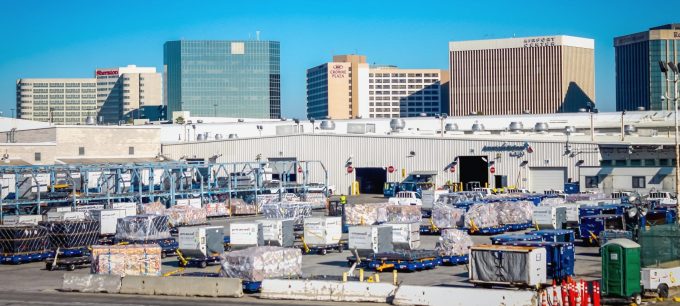Former Polar Air US customer service chief Schirmer jailed for fraud
Polar Air Cargo’s former senior director of customer service for the Americas, Robert Schirmer, has ...
FDX: ABOUT USPS PRIVATISATIONFDX: CCO VIEWFDX: LOWER GUIDANCE FDX: DISRUPTING AIR FREIGHTFDX: FOCUS ON KEY VERTICALFDX: LTL OUTLOOKGXO: NEW LOW LINE: NEW LOW FDX: INDUSTRIAL WOESFDX: HEALTH CHECKFDX: TRADING UPDATEWMT: GREEN WOESFDX: FREIGHT BREAK-UPFDX: WAITING FOR THE SPINHON: BREAK-UP ALLUREDSV: BREACHING SUPPORTVW: BOLT-ON DEALAMZN: TOP PICK
FDX: ABOUT USPS PRIVATISATIONFDX: CCO VIEWFDX: LOWER GUIDANCE FDX: DISRUPTING AIR FREIGHTFDX: FOCUS ON KEY VERTICALFDX: LTL OUTLOOKGXO: NEW LOW LINE: NEW LOW FDX: INDUSTRIAL WOESFDX: HEALTH CHECKFDX: TRADING UPDATEWMT: GREEN WOESFDX: FREIGHT BREAK-UPFDX: WAITING FOR THE SPINHON: BREAK-UP ALLUREDSV: BREACHING SUPPORTVW: BOLT-ON DEALAMZN: TOP PICK

Efforts to address the chronic congestion across US airfreight gateways are bearing fruit, with hopes of imminent government funds to fix the problem at the nation’s busiest airports.
US Airforwarders Association (AfA) executive director Brandon Fried said that, with truck congestion in airport cargo terminals a “big concern” for some time, amendments to the FAA Authorisation Act served as a “big win”.
“We managed to include a provision in the act requiring the Government Accountability Office (GAO) to study the impact of congestion on US trade,” Mr Fried told The Loadstar.
“Having seen the requirement codified into law, the GAO no longer has any choice and the study now has to conclude within the next nine months. We last checked in about a fortnight ago, and the GAO was progressing with this.”
When it comes to cargo, most major US gateway airports have received no substantial cargo-area infrastructure investment in more than 40 years.
This is despite money having been made available since 2015, but Mr Fried said that airport bosses had diverted these funds towards passenger, safety and security needs in the wake of the pandemic.
He has claimed that up to $5bn of extra funding was required to meet cargo terminal needs, describing US airfreight as existing in an “infrastructure crisis”.
Asked which airports were most in need, Mr Fried said: “These are ‘Category X’ gateways, which include Chicago, Los Angeles, Miami, New York JFK and Seattle.” And he added that many of their facilities pre-dated the emergence of larger truck trailers.
“Our assumption, and our hope, is that with this law having been passed, it serves as the government validating the issues,” he said.
“We are seeing it as the foundation for funding legislation that will help and renovate the airports by providing not only money, but also the tools they need to achieve this. It is an issue we face in the US, but it is not unique to the US.”
Comment on this article